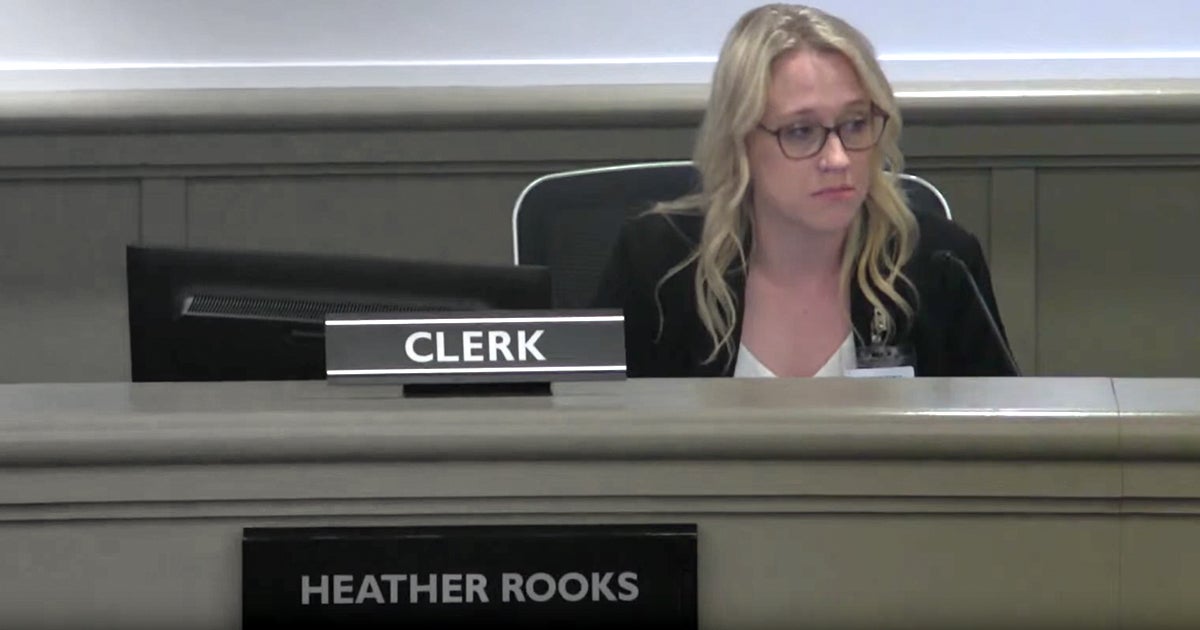
by Jorge Gomez • 4 min read
First Liberty and the law firm Gibson Dunn filed a federal lawsuit this week on behalf of Heather Rooks, a member of the Peoria Unified School Board in Arizona. She is being prohibited from referencing Scripture during school board meetings.
Heather regularly cites Bible verses during her time for remarks. She finds quoting Scripture to be calming and encouraging to her.
Since being elected to the school board and taking office in January, Heather has quoted inspirational verses such as Isaiah 41:10: “So do not fear, for I am with you; do not be dismayed, for I am your God. I will strengthen you and help you; I will uphold you with my righteous right hand.” She also quoted 1 Corinthians 2:5: “That your faith might not rest in the wisdom of men but in the power of God.”
A radical secular organization, however, sent a cease-and-desist letter saying Heather must stop quoting “incendiary Christian verses.” The group threatened to file a lawsuit if members continued quoting Scripture. The Peoria governing board’s attorney also “advised” Heather and other members against quoting Scripture during public meetings.
“Heather takes her responsibilities serving the parents and students in her community seriously, and quotes Bible verses as a source of courage and strength in performing those duties, ” said First Liberty Senior Counsel Andy Gould. “Like so many dedicated public leaders throughout our history, Heather most certainly can use inspirational quotes from religious, historical, and philosophical sources and figures as a source of personal inspiration, as well and encouragement to the community at-large.”
Quoting the Bible at public meetings is part of our country’s history and traditions. Our lawsuit explains:
“For centuries, public officials in the United States have quoted Scripture while carrying out their official duties…. Rooks’ use of quotations from a sacred and historical text—the world’s best-selling book—to solemnize public occasions and fortify herself to perform her official duties fits comfortably within a longstanding, well-accepted tradition. This Court should declare its lawfulness and dispel the threats that have forced Rooks to suspend her practice of it.”
The precedent-setting U.S. Supreme Court ruling in our case, Kennedy v. Bremerton School District, held that public employees have a constitutional right to express their religious beliefs. Concerning Coach Joe Kennedy, the Court wrote, “a government entity sought to punish an individual for engaging in a personal religious observance, based on a mistaken view that it has a duty to suppress religious observances even as it allows comparable secular speech.” The Court made it abundantly clear that “the Constitution neither mandates nor tolerates that kind of discrimination.”
We also point out that the school district’s ban on religious expression is viewpoint discrimination. The law is clear that religious perspectives must be treated the same as other views. It’s illegal to single out religious voices for censorship. If school board members can quote a philosopher or historical figure to encourage those attending a meeting, they certainly can quote a religious text.
Censoring religious speech betrays what religious liberty in America is all about. Public employees don’t have to “check their faith” at the door or abandon their opinions, convictions and beliefs simply because they work for the government. The First Amendment makes sure of that.
The school district’s governing board should follow the law, do what’s right and allow Heather to express her faith. It would serve them well to ignore scare-mongering by an anti-religious group pushing a flawed interpretation of the law.